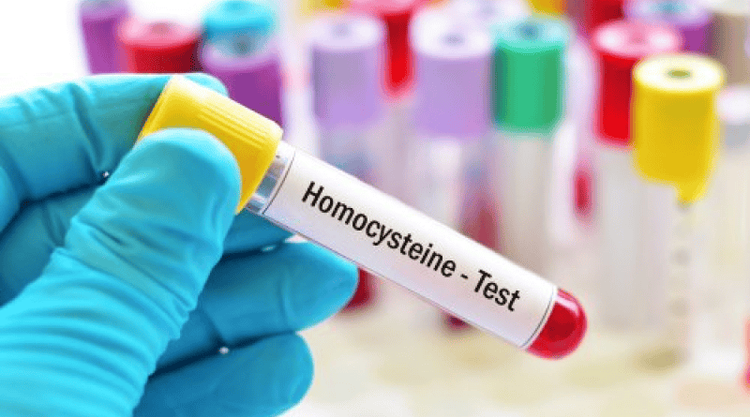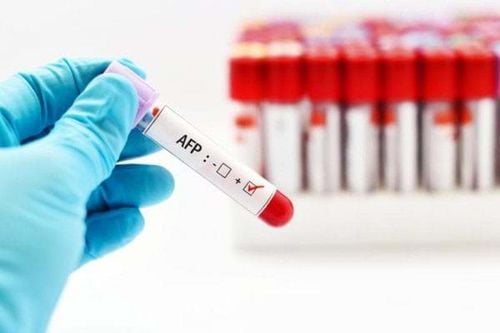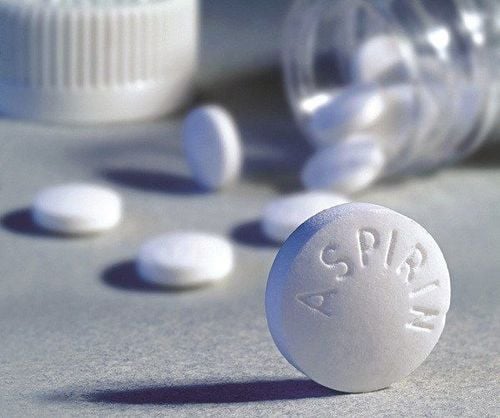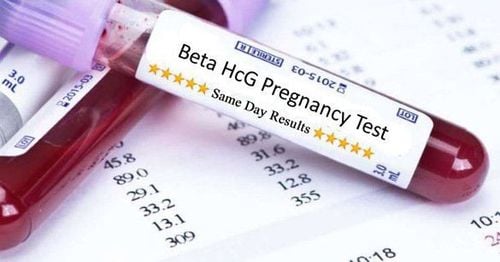This is an automatically translated article.
If homocysteine levels in the blood are high, it will be a risk factor that increases the likelihood of cardiovascular disease. Therefore, it is necessary to test for homocysteine in people at high risk or with existing cardiovascular disease.
1. What is a homocysteine test?
Homocysteine is an amino acid containing a sulphate group, produced during the conversion of methionine to cysteine. In healthy people, homocysteine is converted to a benign substance, but when homocysteine is not metabolized properly, it accumulates in the body and acts as a toxic substance to the body.Genetic and environmental factors, especially vitamins such as folate, B12, B6 will alter homocysteine concentrations in tissues as well as plasma. Therefore, it is necessary to test for homocysteine to assess the risk and have timely treatment and prevention methods.
2. What is the cause of high homocysteine levels in the blood?
Elevated homocysteine levels in the blood increase the likelihood of diseases such as Alzheimer's in middle-aged and elderly people, mental retardation, autism in children. In the process of homocysteine metabolism, some vitamins are required, when there is a deficiency of necessary vitamins, the concentration of homocysteine will increase. In some cases, the elevation of homocysteine is detected earlier than the vitamin deficiency. Treatment of elevated homocysteine by supplementation with folic acid and other B vitamins is very effective.There are two pathways of homocysteine degradation, of which a small part is excreted by the kidneys. The chemical reactions that take place to degrade homocysteine require the catalysis of folic acid, vitamins B6 and B12. Therefore, the serum level of total homocysteine is affected by the presence or absence of these vitamins.
Elevated homocysteine levels are often caused by a number of reasons as follows:
Mutations in genes that regulate the synthesis of substances involved in homocysteine metabolism, such as MTR, MS, MTHFR... In which, there is a link relationship between mutations in the MTHFR gene and increased homocysteine levels in the blood. Deficiency of B vitamins such as B6, B12 and folate or due to chronic kidney failure. Using drugs containing substances that interfere with the metabolism of homocysteine, such as nitric oxide, methotrexate and phenytoin, ...

Xét nghiệm homocysteine là kỹ thuật dùng để đánh giá những người có nguy cơ cao hoặc đang mắc bệnh lý tim mạch.
3. Purpose of Homocysteine test
Homocysteine test aims to:
Determine the concentration of Homocysteine in the blood, based on which to evaluate some medical conditions such as atherosclerosis. The homocysteine test is also indicated to assess the risk of cardiovascular disease depending on the patient's age and other risk factors. Order homocysteine test after a heart attack or stroke to find the cause, help identify some other problems such as repeated thromboembolism, miscarriage or stillbirth consecutively ... Identify vitamin B12, B6 deficiency or folic acid when there are no symptoms or signs such as prolonged diarrhea, dizziness, fatigue, loss of appetite, pale skin, difficulty breathing, rapid heartbeat, burning pain in the tongue, tingling , numbness of hands and feet. Assessment of severe myopia, astigmatism in children, glaucoma, cataracts, detached retina, mental retardation.
4. How is the homocysteine test done?
The homocysteine test is done by drawing blood. The patient is not required to fast before the blood draw, but must not use drugs such as: Carbamazepine, cylose cyn, isoniazid, methotrexate, penicillamine, phenytoin, procarbazine because it may increase homocysteine levels falsely, affecting the diagnosis and treatment.
Normal homocysteine values are as follows:
Men: 1-2.12 mg/L. Female: 0.53 - 2mg/L. If a person's blood homocysteine levels rise, there is a higher risk of arterial damage and blood clots. From there, it leads to coronary artery disease, heart attack, Alzheimer's, other health problems and some related complications like osteoporosis.
In summary, the homocysteine test has an important role in identifying high risks related to cardiovascular disease or vitamin deficiency... From there, there are methods of prevention and timely treatment.
As soon as you notice abnormal signs related to increased homocysteine levels in the blood, you should go to a reputable medical facility for examination. Currently, the Department of Hematology (Blood Complete Blood Test) - Vinmec International General Hospital is one of the leading prestigious addresses in the country, trusted by a large number of patients for medical examination and treatment. . Thanks to the use of modern machines and equipment to test and analyze blood, Vinmec has provided accurate information on red blood cells, white blood cells, platelets, hemoglobin... Overall assessment of the health status of the person being tested, early detection of the disease, and timely treatment suggestions.
In particular, with a space designed according to 5-star hotel standards, Vinmec ensures to bring patients the most comfort, friendliness and peace of mind when visiting and receiving treatment at the hospital.
Please dial HOTLINE for more information or register for an appointment HERE. Download MyVinmec app to make appointments faster and to manage your bookings easily.













